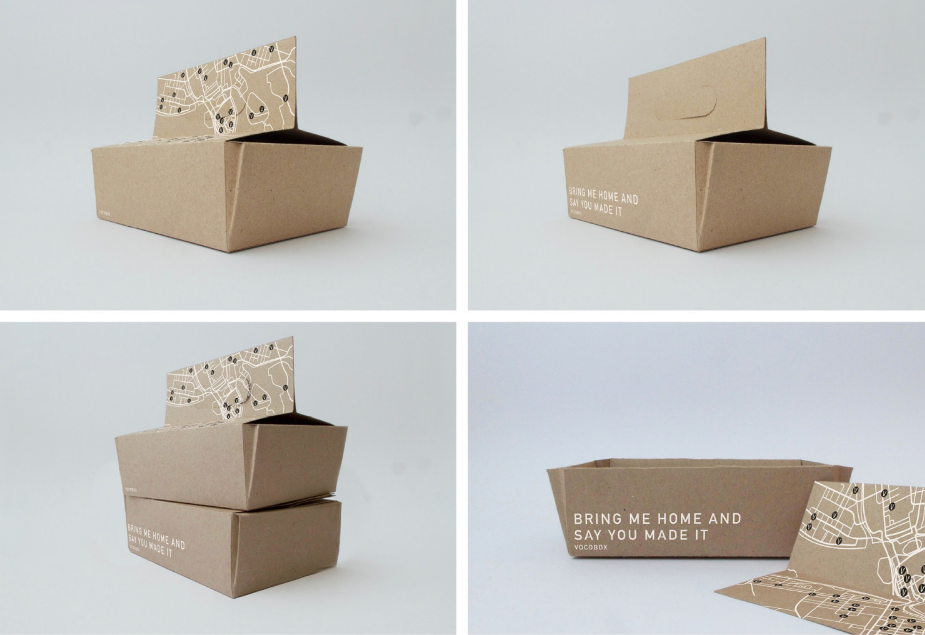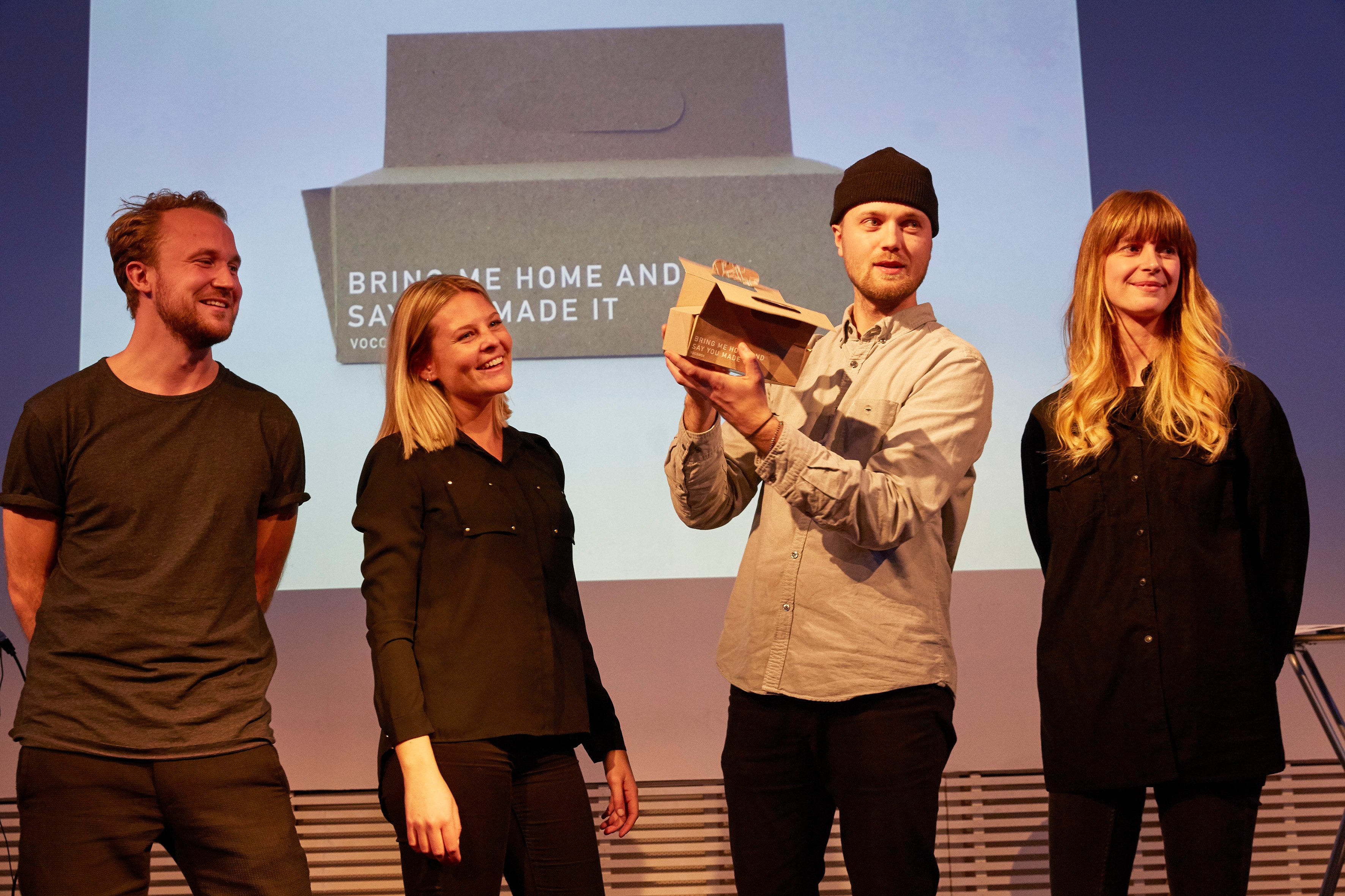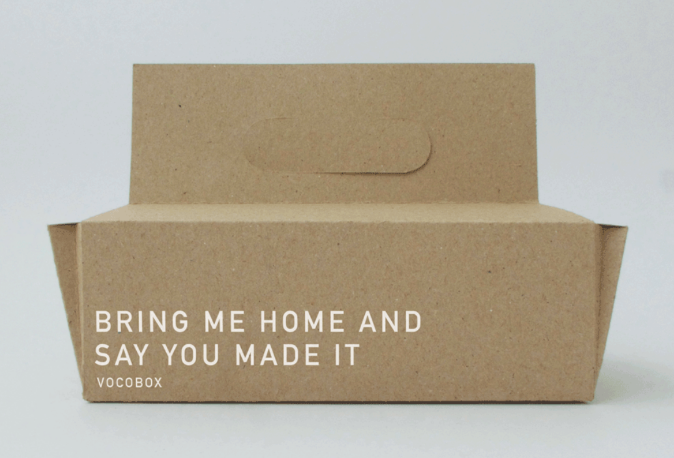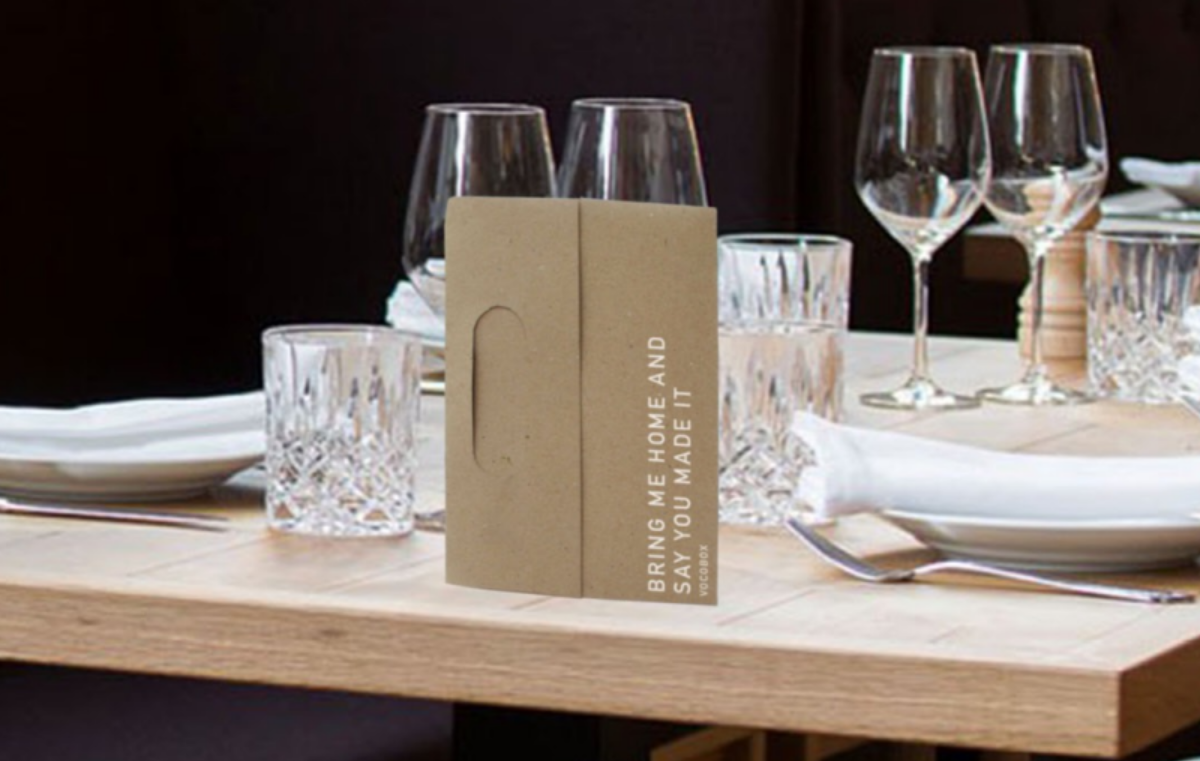Students with a passion for reducing food waste win design competition
The winning entry in this year's edition of the Pack Challenge is called "Vocobox". The challenge was to make packaging the hero in the fight against food waste. Among many strong contributions Vocobox stood out as an idea and design with the potential to bring about real change in behavior. Pack Challenge is arranged annually by BillerudKorsnäs and Bergh's School of Communication in Stockholm.
Vocobox make it natural and easy to bring home the food you don´t eat when visiting a restaurant. Through simple and ingenious design Vocobox becomes part of the table setting. Vocobox encourages sustainable behaviour and gives the package a key role in reducing food waste. The winning team consisted of Axel Kalmaru, Hanna Bergström, Joel Wennström och Johanna Åkeson.
Pack Challenge is an annual collaboration between BillerudKorsnäs and Bergh's School of Communication. It is a competition but primarily an integrated part of the full-time courses Graphic Design and Production Management. BillerudKorsnäs contribute expertise and resources in the entire packaging chain, from production to end user. There is much to consider at each stage and the students get insights into an area where they can come to work after graduation.
Henrik Essén, BillerudKorsnäs Communication and Sustainability Officer, is impressed by the students:
- Food waste is a fundamental sustainability challenge and at BillerudKorsnäs we know that the package can be part of the solution. Through extraordinary commitment and tremendous creativity, the students at Berghs has shown us a range of new and innovative solutions and opportunities. The winning entry was chosen because it enables a sustainable behavioural shift that can bring great positive effect.
Read more about PackChallenge16 and see all the contributions design solutions and case-movies www.packchallenge.se
Facts about food waste:
The Food and Agriculture Organisation of the United Nations, FAO, has assessed that one-third of all food produced in the world for human consumption never reached the consumer’s table. This constitutes an enormous waste of all the resources used for growing, processing, packaging, transporting and marketing food.
The 2012 market value of food products lost or wasted was USD 936 billion; that is in the range of the GDP of countries such as Indonesia or the Netherlands. In Europe and the US, around 30 percent of food produced is wasted, and more than 40 percent of that waste occurs in stores and in consumers’ homes.









